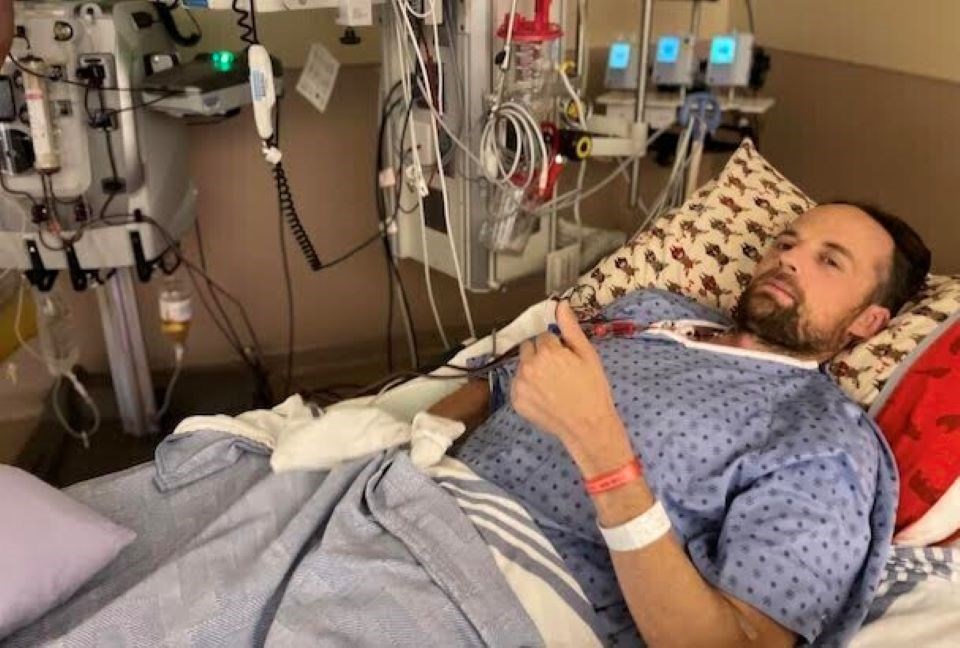A Lake Country man who was injured by the AstraZeneca COVID-19 vaccine is suing the vaccine maker, provincial and federal governments and pharmacy that administered the injection.
Ross Wightman, 41, was temporarily paralyzed and diagnosed with Guillain Barre syndrome shortly after receiving his first dose of the AstraZeneca COVID-19 vaccine in April 2021.
He was one of the first people in Canada to have his vaccine injury certified for compensation by the federal government’s Vaccine Injury Support program that has now paid out $2.7 million to 50 people.
Wightman, in a lawsuit filed last week in BC Supreme Court, alleged the defendants did not warn him of the risk of Guillain Barre syndrome prior to administering the vaccine. GBS is an autoimmune response that affects the nervous system.
The lawsuit names AstraZeneca Canada, Verity Pharmaceuticals, Interior Health, both the federal and provincial government, Hogarth’s Clinic Pharmacy and the John Doe who administered the vaccine.
The civil claim says that around when Wightman received his vaccine on April 30, 2021, the provincial government was marketing that “the first vaccine you have access to is the one you should get.”
Ten days after the dose, Wightman woke up with severe back pain, symptoms that would worsen in the following days. The lawsuit says in addition to GBS, Wightman sustained Bells Palsy, damaged reflexes and eyesight, weakness of his limbs and more. He spent two months in the hospital and it took months of rehab after that before he could walk again.
The lawsuit alleges the defendants advertised the AstraZeneca vaccine “in a manner likely to create an erroneous impression regarding…safety.”
The suit also alleges inadequate testing and “negligently promoting the use of/or dangerous products.”
The claim seeks a variety of damages including those for care and past and future earning capacity.
The defendants all have 21 days to file a response to the lawsuit in court. None of the allegations in the lawsuit have been argued in court.
The federal government says that as of Dec. 1, 2022, it has received 1,299 claims of vaccine injury for compensation. 209 of those have been rejected while the remainder are still working their way through the system.
The maximum amount of compensation available under the federal government's vaccine injury program is $284,000. Wightman told the CBC last year he did not qualify for the full amount, but was also eligible for income replacement up to $90,000 per year.



